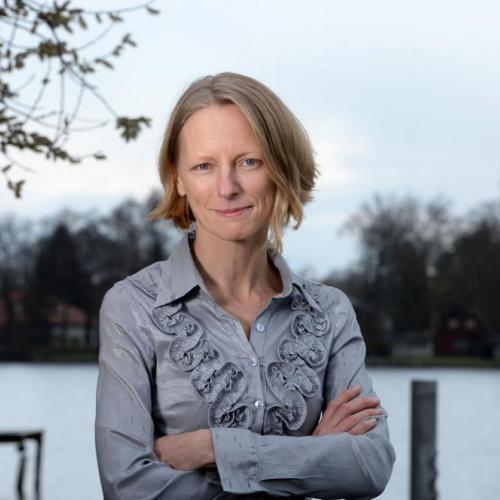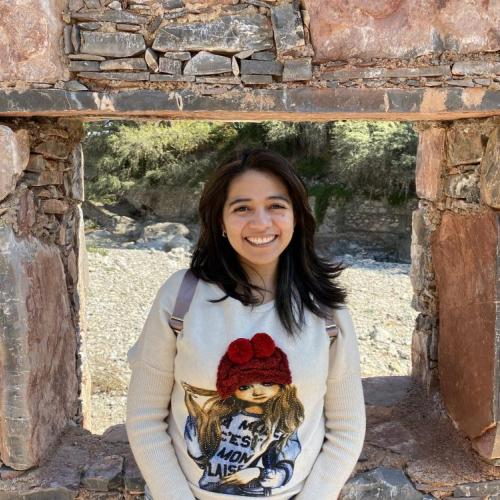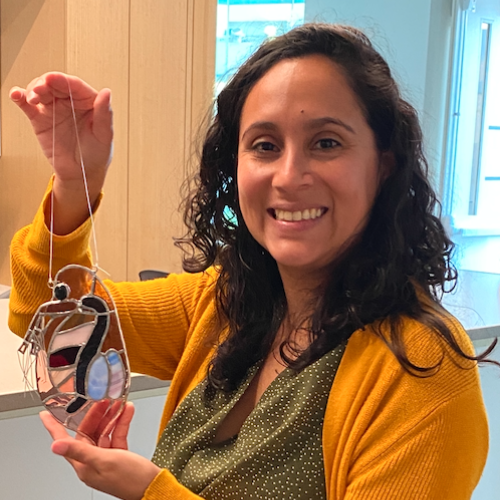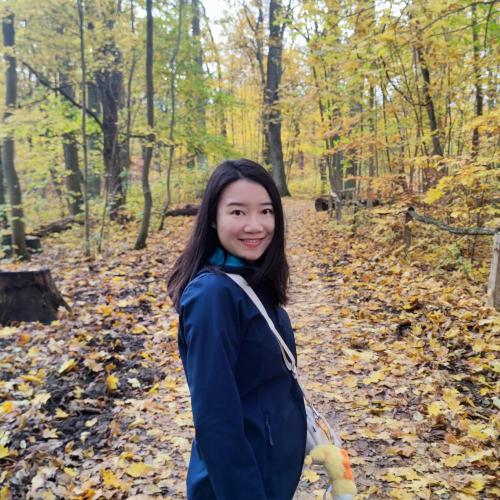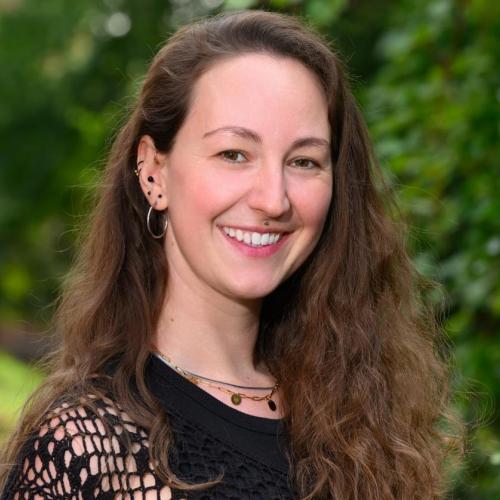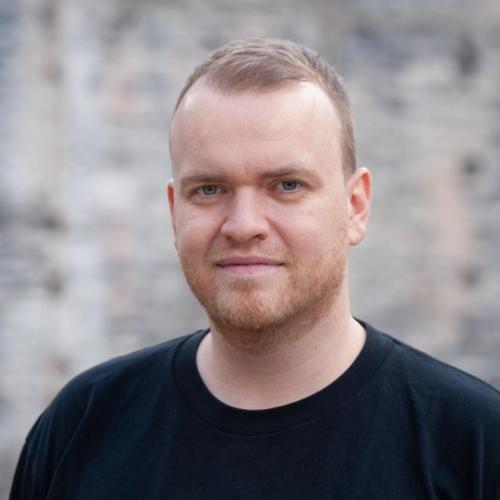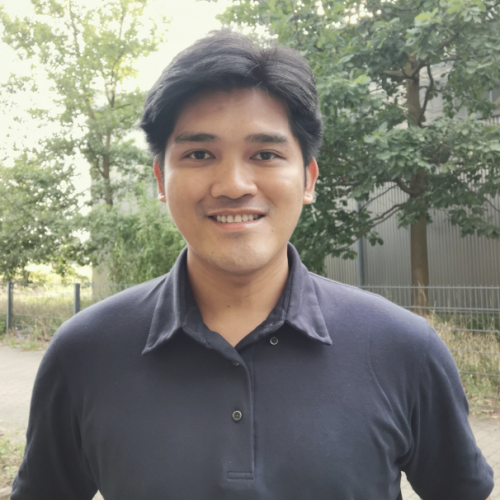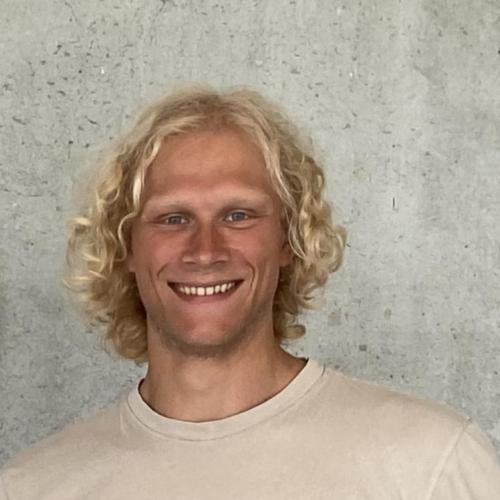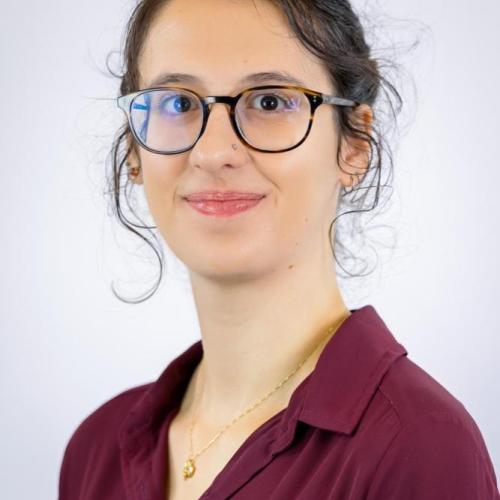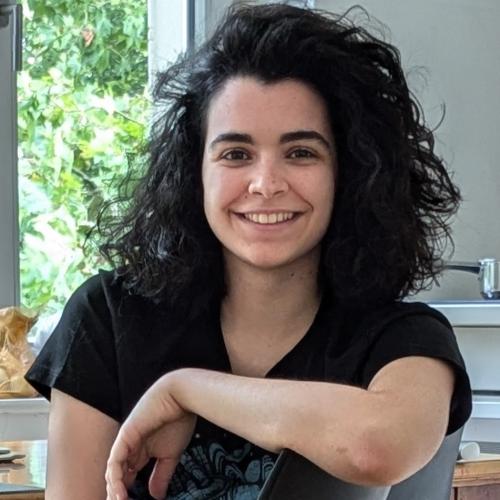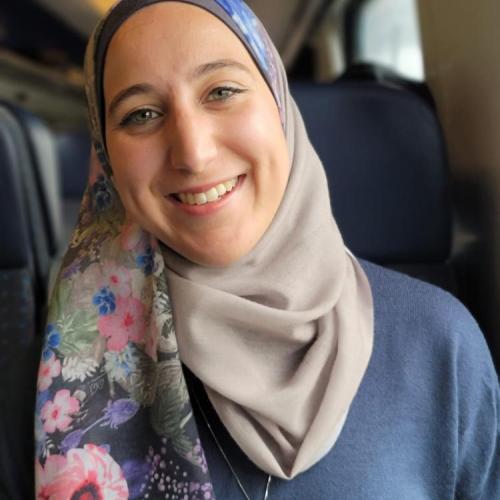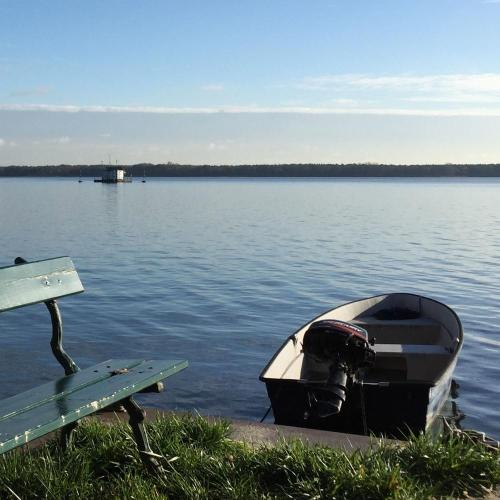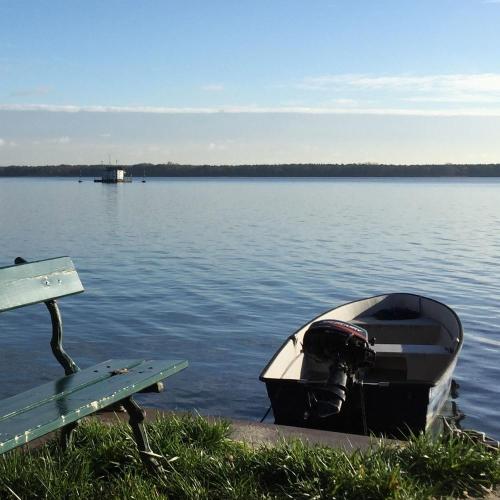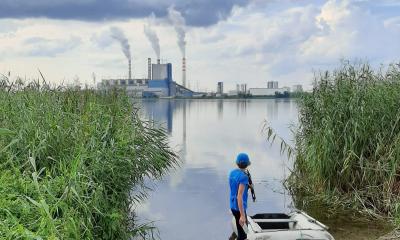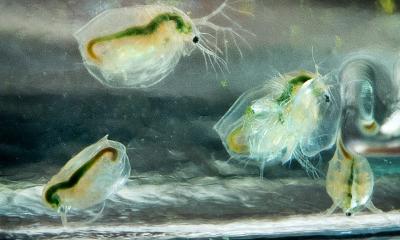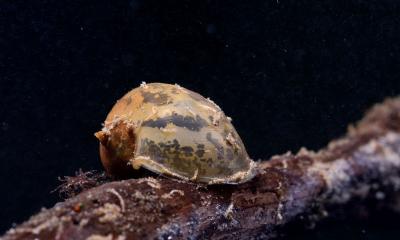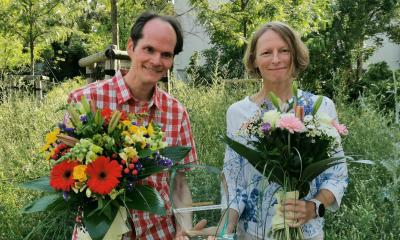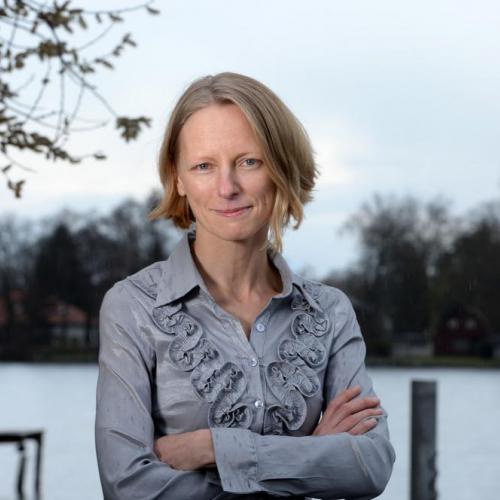
Disease Evolutionary Ecology

Group profile

Disease Evolutionary Ecology Group, June 2024
Back row (left to right): Vanderville Villegas (Andy), Athena Karapli-Petritsopoulou, Dagmar Frisch, Amruta Rajarajan, Pauline Thomé, Justyna Wolinska, Jürgen Strassert, Fabian Flücken.
Front row (left to right): Zeynep Daldaban, Erika Martinez Ruiz, Elisabeth Funke, Kristel Sanchez, Benjamin Schupp, Sarah Lauck.
Absent from the photo (new members): Maysan Nashashibi, Anaïs Marchal, Lilith Biere
We study evolutionary and ecological processes mediated by parasitism in aquatic ecosystems in a changing world. Parasites are ubiquitous and impose strong selection on their hosts to evolve resistance, while themselves being under strong selection to overcome host defenses. We aim to improve understanding of the interface between host–parasite coevolution and major ecological processes under the influence of global environmental change, such as elevated temperatures and the presence of anthropogenic pollutants (e.g., nanoplastics, pesticides). We focus on how global change (a) impacts hosts, parasite diversity, and the occurrence of infectious diseases, and (b) shapes interactions between hosts, parasites, and non-host species.
We use both field and lab studies to address questions of disease in aquatic ecosystems using different model organisms. Through field studies of natural populations, we explore the links between environmental factors and the occurrence of disease. Our field sites, consisting of sets of large permanent lakes or small ponds, represent a gradient of environmental conditions. In the lab, we conduct experiments ranging from single-generation studies to longer-term evolution experiments. We focus on diseases of plankton organisms that occupy multiple trophic levels in aquatic food webs. Specifically, we study the impacts of anthropogenic stressors on interactions between zooplankton Daphnia and their common parasites, as well as phytoplankton cyanobacteria and their parasitic chytrids. To capture changes induced by environmental stressors, we examine both phenotypic traits and genotypic changes. Our ultimate goal is to predict how these interactions, along with their associated ecological and evolutionary processes, may shift under future environmental scenarios.

Spores of Caullerya mesnili. | Image: Petr Jan Juracka

Spore clusters of Caullerya mesnili in the Daphnia gut; histological section. | Image: Wolinska Lab
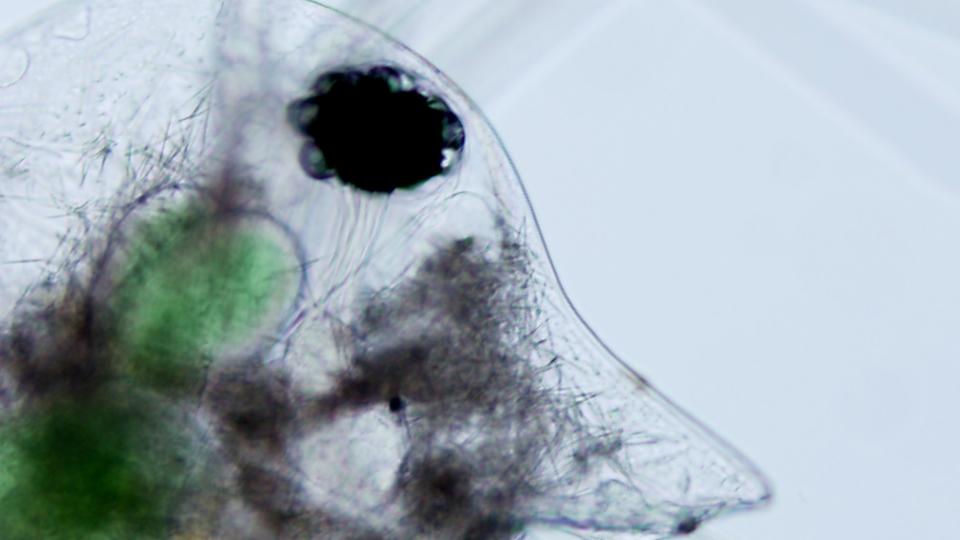
Daphnia infected with yeast parasite, Metschnikowia sp. | Image: Wolinska Lab
Sporulating water mould - parasite of Daphnia. | Image: Wolinska Lab

Cyanobacterium Planktothrix rubescens infected by chytrid fungus Rhyzophydium megarrhizum. Spherical structures are chytrid sporangia. | Image: Ramsy Agha / IGB
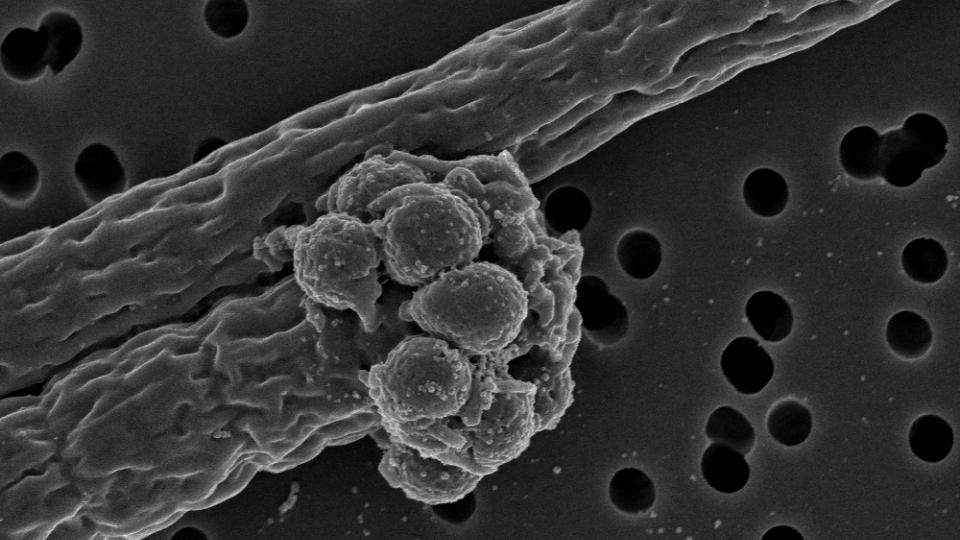
Chytrid Rhyzophydium megarrhizum encysted on a filament of its host, the cyanobacterium Planktothrix agardhii. | Image: Ramsy Agha / IGB
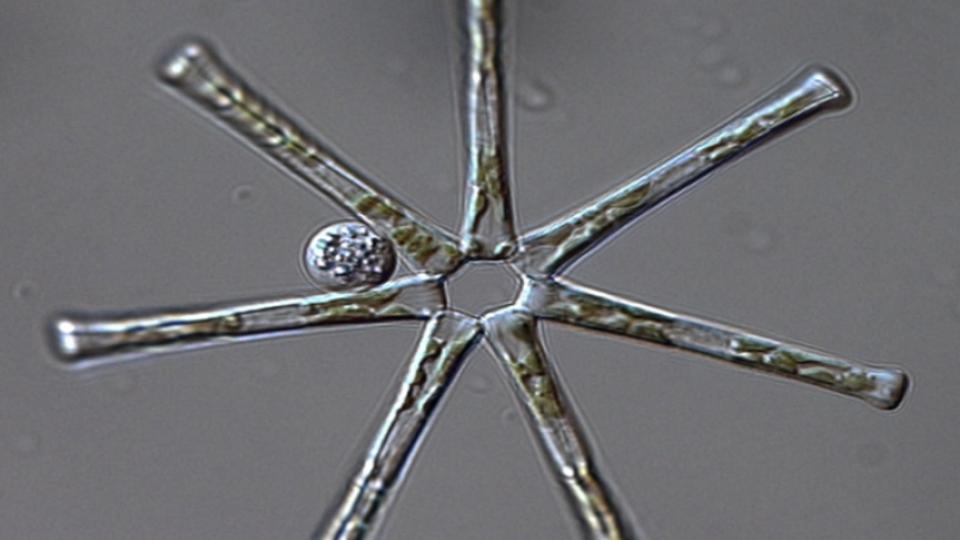
Chytrid on Asterionella formosa. | Image: Melanie Gerphagnon
Daphnia everywhere; PhD defense of Johanna. | Photo: Wolinska Lab
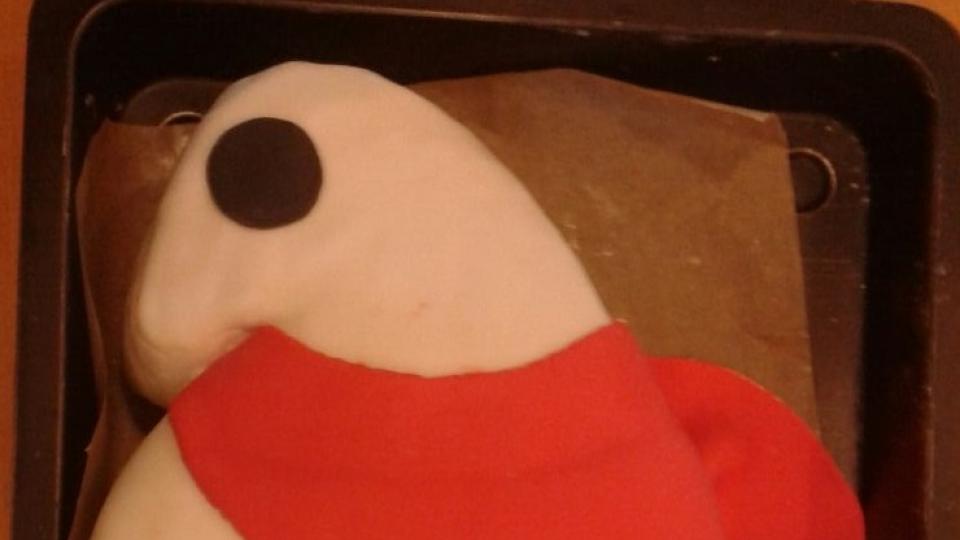
Super Daphnia (project of Johanna & Manja). | Photo: Wolinska Lab

Daphnia galeata infected with a gut parasite Caullerya mesnili; spore clusters visible in the gut epithelium. | Image: Petr Jan Juracka
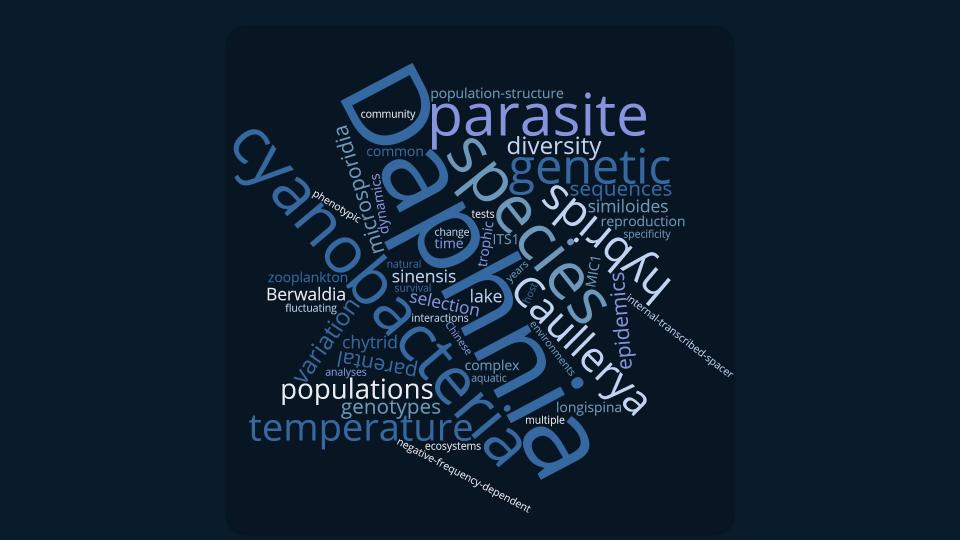
Publications 2016. | Image: Wolinska Lab
Group members
Alumni
Postdocs:
- Amruta Rajarajan (2023–2025) - Funded by DFG Research Project.
- Jürgen Strassert (2021–2024) - Funded by DFG Individual Research Grant.
- Ramsy Agha (2014–2021) – Funded by a Humboldt Research Fellowship and DFG Individual Research Grant.
- Kingsly Chuo Beng (2020–2021) – Funded by the International IGB Fellowship Program.
- Thijs Frenken (2018–2019) – Funded by the International IGB Fellowship Program.
- Yameng Lu (2017–2018) – Funded by DFG Research Project.
- Tatiana Semanova (2017) – Funded by the International IGB Fellowship Program.
- Melanie Gerphagnon (2016) – Funded by the International IGB Fellowship Program.
Doctoral Candidates:
- Florent Manzi (2018–2022) – Thesis available [here]. After PhD: Postdoc at Université catholique de Louvain.
- Manja Saebelfeld (2014-2017) Thesis available [here]. After PhD: postdoc at the Wageningen University, the Netherlands
- Enrique Gonzalez Tortuero (2013–2016) – Thesis available [here]. After PhD: Postdoc at University College Cork, Ireland.
- Johanna Griebel (2012–2016) – Thesis available [here]. After PhD: Data scientist in a private company in Munich, Germany.
- Jakub Rusek (2012–2015) – Thesis available [here]. After PhD: Coordinator at the European Academies Science Advisory Council (EASAC), Brussels, Belgium.
- Mingbo Yin (2009–2011) – Winner of the Chinese Government Award for Outstanding Students Abroad. Thesis available [here]. After PhD: Assistant Professor at Fudan University, Shanghai, China.
MSc Students:
- Sarah Lauck (2024)
- Fabian Flücken (2024)
- Nele Guttmann (2024) – Thesis resulted in the publication: Guttmann et al. 2024, Ecotoxicol Environ Saf.
- Kyla Sehner (2024) – After MSc: Technical assistant at IGB.
- Lukas Webb (2024) – Thesis resulted in the publication: Webb et al. 2024, Fresh Biol. and contributed to Funke, Webb et al. 2024, Fresh Biol. After MSc: Working at a biotechnology company.
- Pauline Thomé (2023) – Thesis resulted in the publications: Thomé et al. 2023, Biol Lett; Thomé et al. 2024, Mol Phyl Evol. After MSc: PhD at IGB.
- Paula Schlösser (2022) – Thesis contributed to the publication: Manzi, Schlösser et al. 2023, Phil Trans R Soc B. After MSc: Technical assistant at IGB.
- Antonia Adlers (2022)
- Marc Wagner (2020)
- Charlotte Schampera (2019) – Thesis resulted in the publication: Schampera et al. 2021, Environ Pollut. After MSc: Research assistant at IGB and PhD student at HU Berlin.
- Nesar Ghadernezhad (2019) – Thesis contributed to the publication: de Souza Machado, Ghadernezhad et al. 2023, Environ Sci Eur.
- Bruno Kenji Ortiz-Cañavate Ozeki (2018) – Thesis resulted in the publication: Ortiz-Cañavate et al. 2019, Chemosphere.
- Alina Gross (2016) – Thesis contributed to the publications: Agha, Gross et al. 2018, Parasitology; Agha, Gross et al. 2018, Front Microbiol. After MSc: Biology teacher.
- Amanda Navas Faria (2013) – Winner of the 7th LMU EES annual conference: best presentation of the MSc Project. Thesis contributed to the publication: Griebel, Navas Faria et al. 2015, PLoS one. After MSc: PhD student at Georg-August-University Göttingen.
- Gokce Ayan (2013) – Poster prize at the international SEFS conference in Münster, 2013. Thesis contributed to the following publication: Rusek, Ayan et al. 2015, J Plank Res. After MSc: PhD student at the Max Planck Institute, Kiel.
- Felicitas Buchberger (2013) – After MSc: PhD student at LMU Munich.
- Monika Poxleitner (2012) – Winner of the 6th EES annual conference: best presentation of the MSc Project. Thesis contributed to the following publication: Griebel, Poxleitner et al. 2015, PLoS one. After MSc: PhD student at LMU Munich.
- Stefanie Weigl (2011) – Thesis resulted in the publication: Weigl et al. 2012, Parasitology.
- Isara Arsiranant (2010) – After diploma: Working at the Marine and Coastal Resources Research Center in Thailand.
- Olivia Hesse (2010) – Thesis resulted in the publication: Hesse et al. 2012, BMC Ecology. After diploma: PhD student at LMU Munich.
- Wolfgang Engelbrecht (2010) – After diploma: PhD student at LMU Munich.
- Jennifer Lohr (2009) – Thesis resulted in the publications: Lohr et al. 2010, Parasitology; Lohr et al. 2010, J Eukaryot Microbiol. After MSc: PhD student at the University of Fribourg, Switzerland
BSc Students:
- Luka Manseck Cerazo (2024)
- Nele Guttmann (2021) – Thesis contributed to the publication: Li, Guttmann et al. 2024, PLoS Biology.
- Noemi Azoubib (2021) – Thesis contributed to the publication: Mavrianos, (…), Azoubib et al. 2023, Fresh Biol.
- Louise Seemann (2020) – Thesis contributed to the publication: Manzi, Seemann et al. 2021, Parasitology.
- Mellery Dundr (2019)
- Yari Ossenberg (2016)
- Christin Manthey (2015) – Thesis contributed to the publication: Agha, Manthey et al. 2016, Sci Rep. After BSc/MSc: PhD student at FU Berlin.
- Anna May (2013)
- Corinna Sachs (2012)
- Clarissa Mathieson (2012)
- Felicitas Buchberger (2011)
- Helena Macke (2011)
- Eva Kluzik (2010)
Exchange & Erasmus Students:
- Joe Money (Exchange PhD student, 2022) – Funded by the Polish National Science Center.
- Marcin Dziuba (Exchange PhD student, 2018 & 2020) – Funded by DAAD and the Polish National Science Center.
- Agata Owczarz (Erasmus student, 2021) – Project contributed to the publication: Manzi,…., Owczarz et al. 2023, Philos Trans R Soc B.
- Stylianos Mavrianos (Erasmus student, 2021) – Project resulted in the publication: Mavrianos et al. 2023, Fresh Biol.
- Dilara Ogretmen (Erasmus student, 2016–2017)
- Inbar Maayan (Erasmus student, 2014) – Project contributed to the publications: Gonzalez-Tortuero, Maayan et al. 2016, Zoology; Gonzalez-Tortuero, Maayan et al. 2016, Parasites & Vectors.
Publications
Projects
News & media
Lab news
June 9, 2025
Congratulations and Welcome Dr. Le Lie
!!!!!

May 12, 2025
Farewell to Dr. Amruta Rajajaran!!!
Dr. Le Liu has been awarded a 2-year postdoc fellowship from DAAD-CSC to join our group! Le will work on the IMPACT project starting this Fall. Le will focus on how different concentrations of nanoplastic impact Daphnia communities and their disease dynamics.
We celebrated Amrutas time in the lab and accomplishments with some good food and a fancy Daphnia cake.
Carrier Opportunities & Alumni
Postdoc fellowship
If you're interested in securing a grant to support a postdoctoral position in our lab, there are several opportunities available, such as the IGB Fellowship, DFG Fellowship, Benjamin Walter Fellowship, Humboldt Fellowship, Marie-Curie Fellowship, Rising Star Fellowship. We encourage you to reach out and discuss how we can collaborate on your application.
Master/Bachelor project
We are eager to welcome proactive students who wish to explore their own novel research questions under our guidance and develop projects in various research areas. Potential topics could include examining the effects of environmental stressors (such as climate change) on aquatic ecosystems, biodiversity research using modern DNA-sequencing methods, experimental evolution, and more. If you’re interested, please contact us to discuss your ideas.
What Do We Offer? We provide an inspiring atmosphere within an international research group (as of September 2024, our team consists of sixteen members from nine different nationalities). You will receive the appropriate level of guidance and supervision for your project, while also having the space to work independently. We offer a genuine research experience that will benefit your future career, whether within or outside academia. Many of our previous students have achieved significant success, with Master’s and Bachelor’s projects often leading to peer-reviewed publications. Check below to see what our former students have accomplished.


